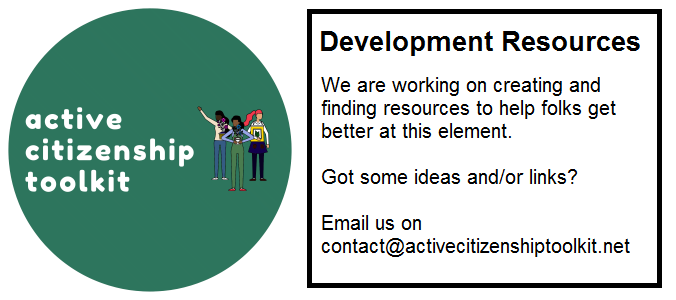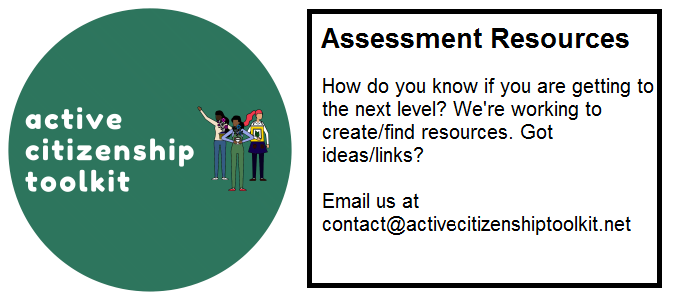Element Descriptor
Who runs local government? Councillors or officers? You’ll get different answers depending on who you ask, but building a good relationship with the local authority’s paid staff can further the organisation’s aim. In some cases, it may be more critical to influence the officers than the elected members. At other times, officers ‘on side’ may be willing to divulge more than the ‘bare minimum’ information, offer advance notice of important developments and provide background context that is not readily available in any other form. Understanding the pressures on officers, or those who are uncooperative or not up to the task, will also help a group determine when pressure needs to be applied in other ways.
Level descriptors
| Novice | Practitioner | Expert | Ninja |
|---|---|---|---|
| Understands the role and remit of an officer. Knows who the most relevant officers are for the issues they are concerned with and happy to write to them (although might check in with experienced others to clarify the best approach). | Understands how to phrase written correspondence to officers in order to elicit helpful responses. Regularly and independently communicates with a range of officers. | Respected and trusted by number of officers. Demonstrable record of officers going out of their way to help the social movement organisation, sometimes in defiance of their political masters. Can point to instances when an officer has taken on board their suggestion, or incorporated it into policy. | Sets the agenda for officers, knows their next move before they do. |
Element Overview Essay
This is a draft. If something doesn’t make sense, or you see typos, or if you have further ideas, please email us on contact@activecitizenshiptoolkit.net
The reasons behind this being done badly are that number one, people don’t understand what you are and are not likely to get out of any given officers shy of using the Freedom of Information Act request, they don’t understand the pressures and the constraints on employed officials of the Council. And when they don’t get the information or the outcome that they want, they might give up and take what skills they’ve learned with them.
The consequences of engaging with council officers badly either without in broad enough scope or not in the long term is that the kind of pressure and interest that you do bring to bear doesn’t ever reach the threshold of forcing the council to do things better or differently.
The fixes are for you to adjust your expectations of what you’re going to get through engagement with council. offices short of using foia demands.
And it’s to think of this is a process not as an event that you are going to have repeated iterations of hopefully cooperation. But know also conflict is a possibility with unelected officials. Now, it’s at this point that we should say something very important.
Really, unless the unelected official is the boss of their patch, ie, they’re in the strategic management team. Then, really they are, quote, only following orders, unquote. And they’re not under normal circumstances. fair game for naming in blog posts or letters to the editor or whatever. It’s different for elected politicians, because once you’re elected, you are formally responsible. You chose that role, even if you are forced into it by your party comrades, but that’s part of the game. Unelected officials, bureaucrats, civil servants are sometimes very culpable. But there is a useful, important convention in my opinion, that says they are not ultimately responsible. You need to make sure that the blame is attached not to the person delivering the decision or administering they are implementing, but the ones with the democratic accountability and responsibility.
Development Resources

Assessment Resources

